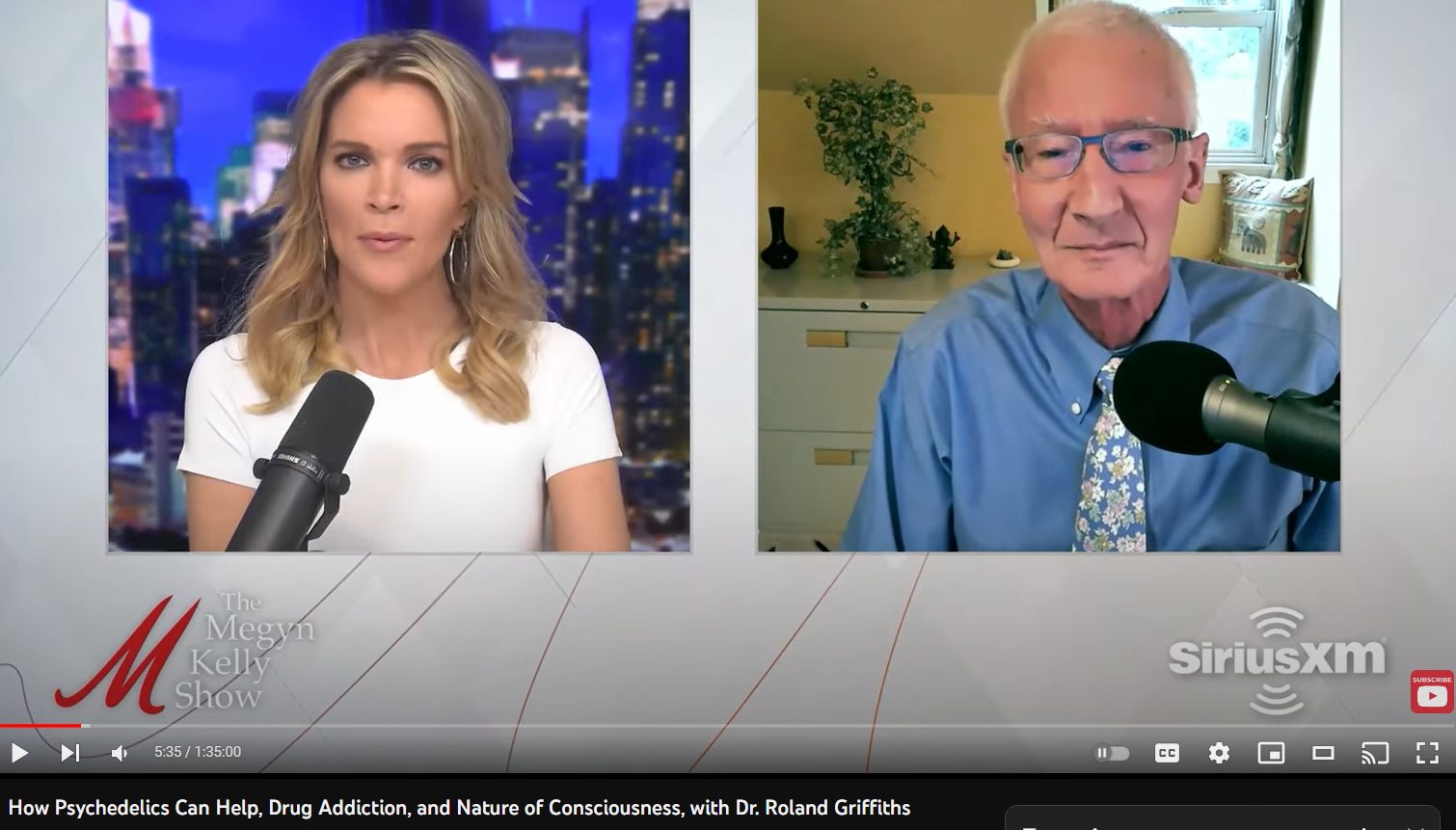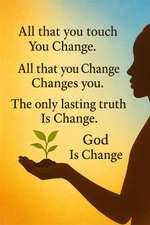Source: Megyn Kelly / Youtube
Megyn Kelly is joined by Dr. Roland Griffiths, Director of the Center for Psychedelic and Consciousness Research at the Johns Hopkins University School of Medicine, to talk about the history of psychedelic drugs, how caffeine is one of the most-used addictive drugs in the world, how "psilocybin" research started and how it is conducted, the amazing results of psychedelic use in patients, how psychedelics can help with depression and addiction, what happens in the brain during a psychedelic experience, the differences between MDMA or psilocybin or ketamine, the current state of addiction in America, groundbreaking cancer patient study using psychedelics as therapeutics, how Griffiths' personal experience of a terminal cancer diagnosis has changed his own perspective, appreciating life and practicing gratitude, the questions about end of life, how we can make the most of our lives, the nature of consciousness, and more.
MK: "[..] something I know absolutely nothing about, but it's popping up here, there and everywhere. If you're like me and you've never taken a magic mushroom and you don't know anything about it but you're hearing the buzz about this psilocybin... you know there's also LSD
I get it I have the same associations with those at least LSD that you might, as the children of the 70s, but this is growing and growing in popularity under controlled settings because it's proving to be a game changer... a game changer when it comes to things like depression, anxiety even potentially addiction anorexia, smoking...
I mean we're gonna go down the list of things that this drug is potentially helping with and the studies that are that are being done on it now thanks to Our Guest today [..]
[..] now psilocybin is a naturally occurring compound that you can find in these magic mushrooms, and it affects the central nervous system
I know what you're thinking okay but it's not about getting high, it's really not. It is about treating some of these problems that a lot of people have...
my God have you seen the latest stats on anxiety and depression
Studies have shown that psilocybin has great potential when it comes to depression, alcohol addiction, uh smoking [..]"

RG: "I undertook a meditation practice and uh there was something that was intriguing to me about exploring inner states and I realized that I didn't have any strong orientation at all toward that [..]"
"[..] as I got more deeply involved with meditation I started to have some very unique experiences that um were unlike anything I had experienced before and which struck me as profound uh
and I and frankly I didn't know what to make of them uh
it had overtones of what people reported as spiritual experiences uh but I I couldn't I couldn't quite figure it out
I started reading about different meditation Traditions, experiences that come out of religious traditions, and then I stumbled upon the older research from the 1950s and 60s on the psychedelics [..]"
"[..] that research suggested that psychedelics could produce some of these same kinds of interesting experiences and so at that time well let's just kind of put it in in perspective
so psychedelics had been actually pretty extensively studied in the 50s and 60s not and and early 70s but not according to the methods that we would use today [..]"

RG: "it appears that some vulnerable people can develop long-term psychotic disorders so someone in the in their probably early 20s - if they have a vulnerability towards schizophrenia the concern [exists]"
"we actually don't have scientific proof of this but we have enough case reports to make me believe it the concern is that someone that already has a tendency towards psychotic disorder, that exposure to these kinds of compounds might be enough just to push them over the edge, and there's no returning from a diagnosis of schizophrenia once that's in play that's a lifelong condition and that's horrible and so we go way overboard in terms of screening people as much as we possibly can [..]"

"Among the most meaningful experiences of your life and indeed that's that's kind of the core finding: that there's something about these experiences that are remarkable in terms of how they're imprinted and remembered and then the attributions that people make to those experiences so I'd never seen anything like that [..]"
"[..] classic psychedelics they don't produce classic dependence, they don't produce physical dependence.
"Some people may want to take them again but even if you wanted even if someone wants to take them again it's generally months or years between uses not days and they're not habit forming in that sense"
"there was a lot of concern about brain damage and uh and that appears not to be the case with the classic uh psychedelics. It's more of an issue but that would be debatable with clinical doses of ketamine and MDMA"
[..] there is some literature about high dose MDMA producing some enduring neurological problems but that's a that's an area of active debate [..]"

"[..] the deepest existential question isn't it what what happened what are we doing here what happens when we die and that's a source of tremendous fear for some for some people [..]" https://youtu.be/70u4oN842fY?t=4299
To watch the whole video, click here







